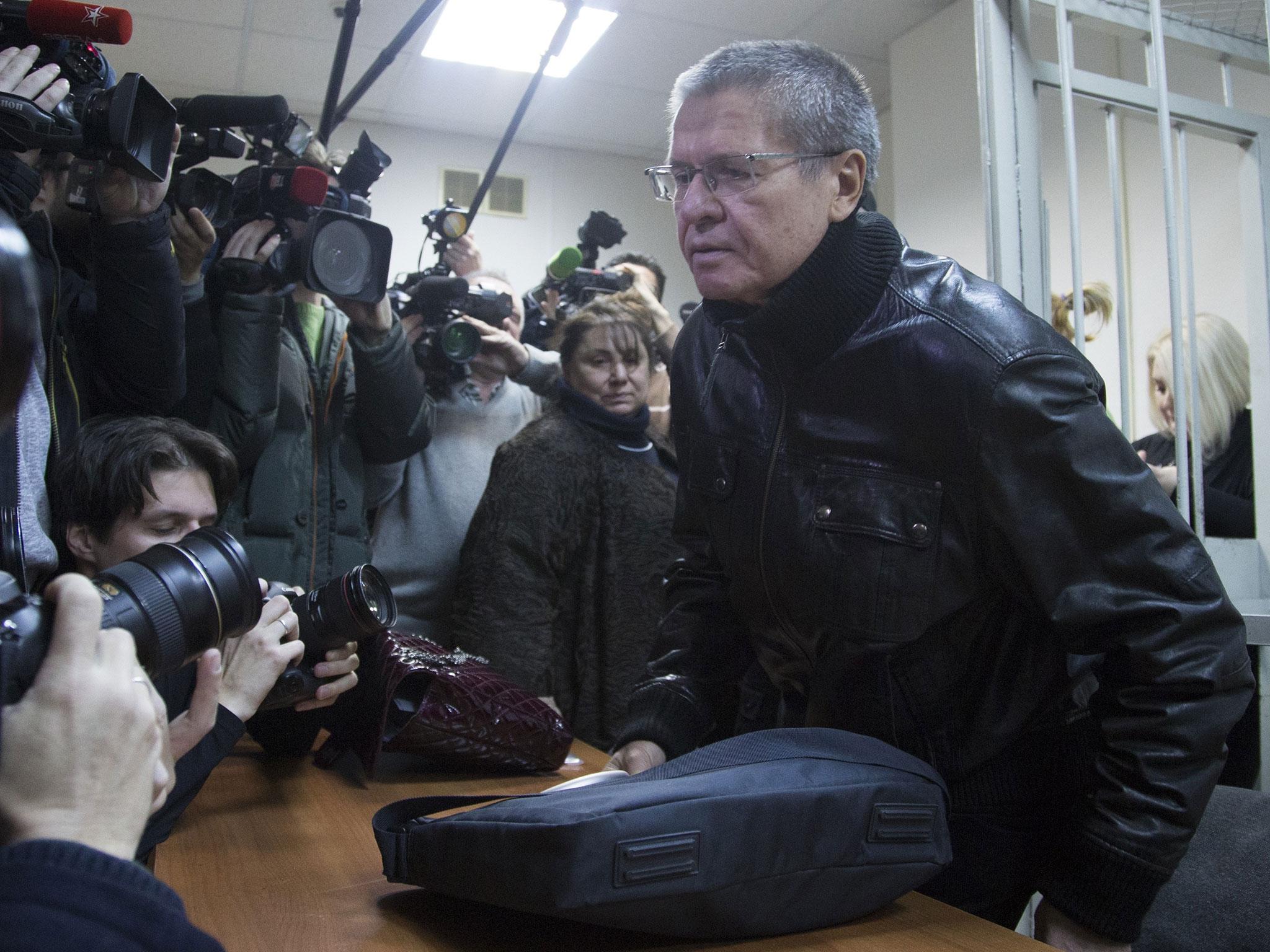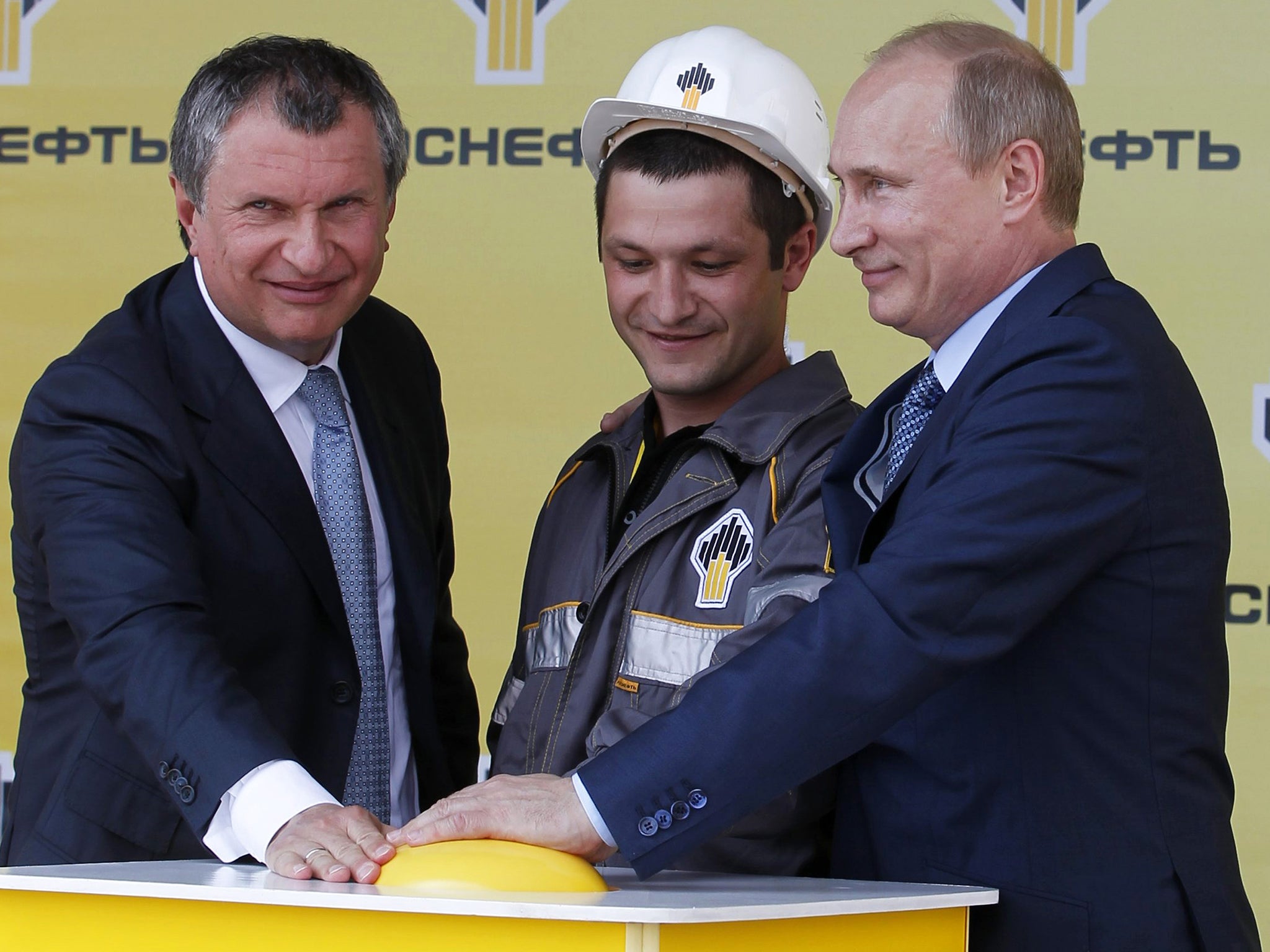Ex-minister begins defence in trial that exposes rift at top of Russian politics
Corruption claims pit the the former economics minister Alexei Ulyukayev up against the extremely influential Putin ally Igor Sechin

Your support helps us to tell the story
From reproductive rights to climate change to Big Tech, The Independent is on the ground when the story is developing. Whether it's investigating the financials of Elon Musk's pro-Trump PAC or producing our latest documentary, 'The A Word', which shines a light on the American women fighting for reproductive rights, we know how important it is to parse out the facts from the messaging.
At such a critical moment in US history, we need reporters on the ground. Your donation allows us to keep sending journalists to speak to both sides of the story.
The Independent is trusted by Americans across the entire political spectrum. And unlike many other quality news outlets, we choose not to lock Americans out of our reporting and analysis with paywalls. We believe quality journalism should be available to everyone, paid for by those who can afford it.
Your support makes all the difference.Russia’s former economy minister Alexei Ulyukayev has had a difficult year, and it shows. The first serving minister to be arrested for 60 years, Mr Ulyukayev has lost a considerable amount of weight and youthful exuberance. What lies ahead could be even more testing.
Prosecutors allege the ex-minister extorted a $2m (£1.5m) bribe from Vladimir Putin associate and head of state oil company, Rosneft Igor Sechin. Monday was Mr Ulyukayev's first opportunity to address the allegations. He used it to turn the spotlight back to Mr Sechin, a man considered to wield significant informal influence behind the scenes.
“Not guilty – I categorically deny it,” he began. He said there had been no requests for a bribe, no threats, and no misuse of ministerial position, and that the presented evidence was “obviously ... and deliberately false”.
It is now 13 months since the former minister was arrested after leaving Rosneft offices with a locked bag containing several kilos of cash. Mr Sechin had played a leading role in the sting – inviting him to his office, bugging their conversations, handing him the bag and arranging his arrest.
Mr Sechin has objected to the public nature of parts of the trial. In September, he described the decision to release transcripts of the bugged conversations as “professional cretinism”.
So far, the Rosneft chief has refused to testify as a witness. For a long time, his staff even refused to take court summons. After the third attempt to deliver the summons, press secretary Mikhail Leontiev declared there were no gaps in the diary “until the end of the year”.
The court’s persistence in inviting his boss amounted to “Sechin-hunting,” he said.

Today, lawyers for the defence admitted defeat and confirmed they would not call Mr Sechin for the fourth time. This allowed the trial to move a step closer to the verdict.
In court today, Mr Ulyukayev said he was surprised to find out what was inside the bag. He said he was under the impression it contained fine wine – that is what he had been promised by Mr Sechin. The oil chief often gifts presents, including watches, he said: “That was his standard business etiquette.”
This time, however, the bag had been “deliberately locked” so that it was difficult to see what was inside before being arrested.
The court heard witness testimony from linguistic expert Yelena Galyashina, who said it was possible that Mr Ulyukayev did not understand what was inside the bag.
According to the prosecution, Mr Ulyukayev solicited the money to give the green light to Rosneft’s purchase of 19.5 per cent of rival Bashneft. Mr Ulyukayev’s ministry had doubted the logic of the majority state-owned company taking part in what was supposed to have been a “privatisation”. Later, they appeared to come round to the Rosneft bid.
In court, Mr Ulyukayev said he had been against the deal, but his quasi-judicial ministerial role gave him no grounds to veto it. It was “absurd” to suggest he had taken a bribe for a deal that had already, in fact gone through, he said. “I certainly did not threaten [Mr Sechin].”
At the time, many of Mr Sechin’s opponents noted the incongruity of the lowly minister presenting such an ultimatum to the all-powerful Mr Sechin. Writing on Facebook, the former deputy prime minister Anatoly Chubais expressed disbelief: “They are saying Ulukayev was threatening Rosneft. Have I suddenly stopped understanding something about this world?”
Prime Minister Dmitry Medvedev described Mr Ulyukayev’s arrest as “a difficult event ... beyond my comprehension.”
Over time, the trial has offered a visible barometer of splits and rivalries within the Kremlin. At key points in the process, video and audio evidence unflattering to the Rosneft chief has been leaked to the press. Many believe Mr Sechin has overstepped his mark in the affair.
It is not clear if President Putin played an active role in the sting operation, but sooner rather than later, the President will have to deal with the fallout. His decisions will offer as many clues about Mr Sechin’s future as it will about Mr Ulyukayev.
Join our commenting forum
Join thought-provoking conversations, follow other Independent readers and see their replies
Comments